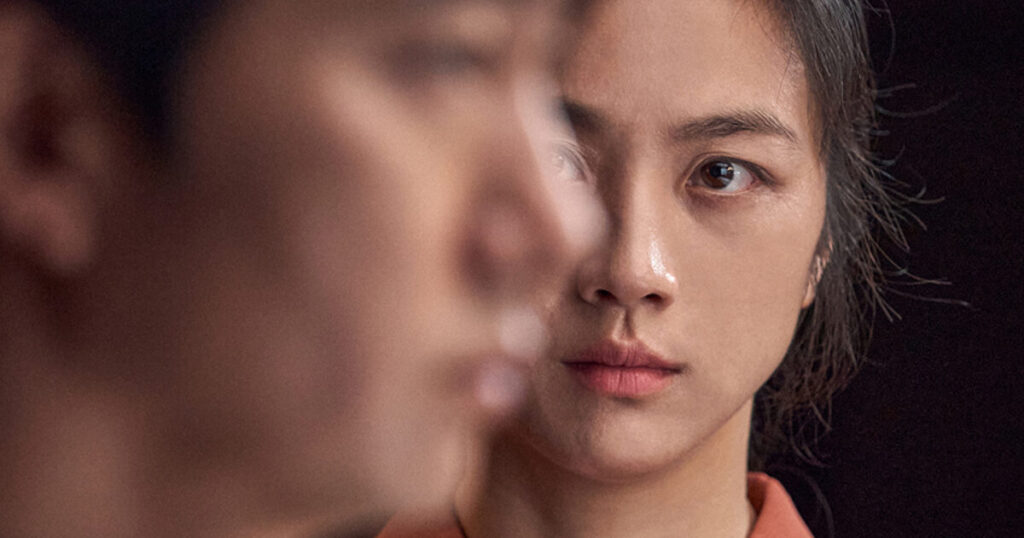
In the roller coaster neo-noir Decision to Leave, detective Hae-joon (Park Hae-il) is already an obsessive personality, whose agonizing over unclosed cases has given him chronic insomnia, He and his wife have an apartment near her job, but he works in a different city, and the walls of his pied–à–terre are covered with crime scene photos from the unsolved cases, just so he can stew about them even more. For his wellbeing, this is the very last guy who should be exposed to a mysterious femme fatale.
He investigates a death in the mountains, which could be a mountain climbing accident or suicide – or perhaps a brilliantly configured murder. He suspects the victim’s much younger Chinese wife, Seo-rae (Tang Wei) a woman with a past, but she has an airtight alibi. He interrogates her and surveils her, which she seems to enjoy, and he becomes more and more fascinated with her. He is utterly beguiled, and Decision to Leave becomes ever more the page turner as the sexual tension escalates. This evolves into a perverse battle of wits that Hae-joon may not be destined to win.
Decision to Leave is the work of writer-director Park-chan Wook, who made the brilliantly erotic The Handmaiden. Like The Handmaiden, Decision to Leave doesn’t end when the audience expects it to. And, like in The Handmaiden, not everything is as it seems.
Tang Wei is exceptional as she unpeels the onion that is Seo-rae. When we first meet Seo-rae, the effect is nothing like the stunning introductions of Barbara Stanwyck’s Phyllis Diedrichson, Jane Greer’s Kathie or Rita Hayworth’s Gilda; we underestimate her. We watch as she cleverly and somewhat conventionally captivates Hae-joon. But nothing prepares us for her revealing just how twisted a mastermind she turns out to be. She’s a femme fatale for the ages.
